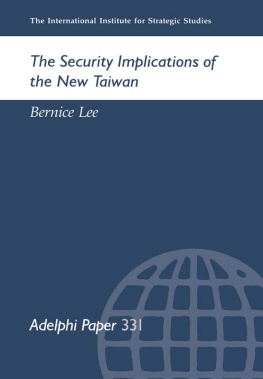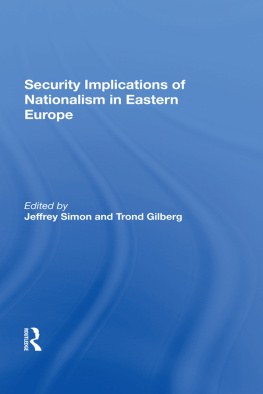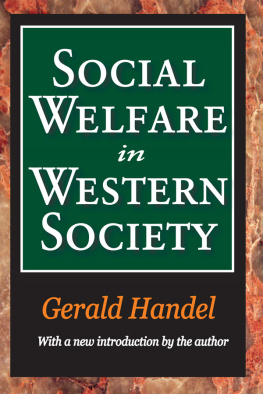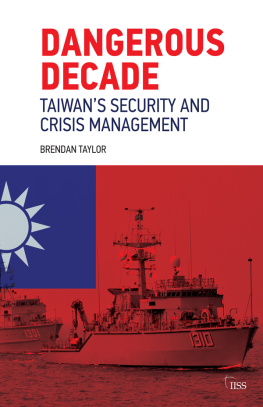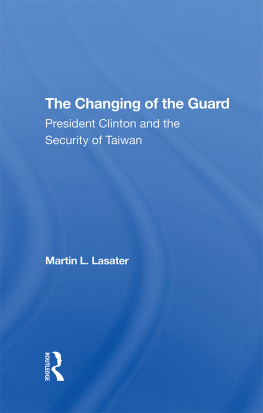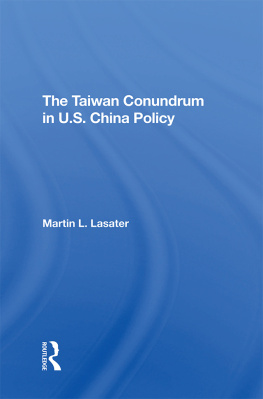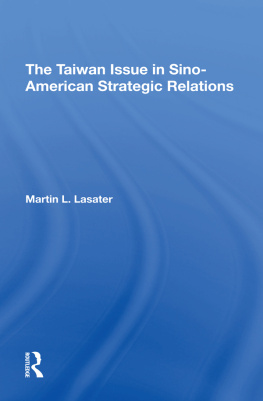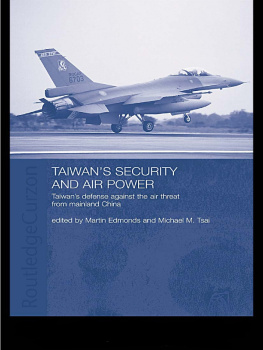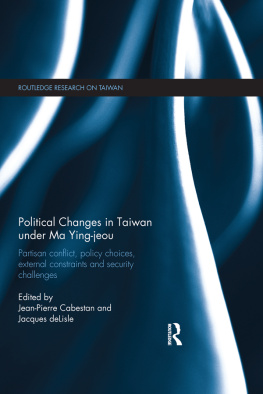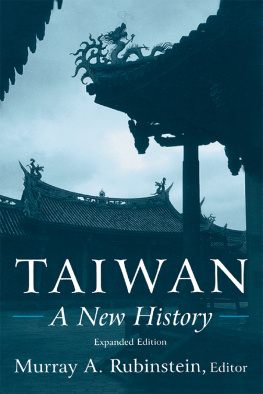Bernice Lee - The Security Implications of the New Taiwan
Here you can read online Bernice Lee - The Security Implications of the New Taiwan full text of the book (entire story) in english for free. Download pdf and epub, get meaning, cover and reviews about this ebook. year: 2013, publisher: Routledge, genre: Politics. Description of the work, (preface) as well as reviews are available. Best literature library LitArk.com created for fans of good reading and offers a wide selection of genres:
Romance novel
Science fiction
Adventure
Detective
Science
History
Home and family
Prose
Art
Politics
Computer
Non-fiction
Religion
Business
Children
Humor
Choose a favorite category and find really read worthwhile books. Enjoy immersion in the world of imagination, feel the emotions of the characters or learn something new for yourself, make an fascinating discovery.
- Book:The Security Implications of the New Taiwan
- Author:
- Publisher:Routledge
- Genre:
- Year:2013
- Rating:5 / 5
- Favourites:Add to favourites
- Your mark:
- 100
- 1
- 2
- 3
- 4
- 5
The Security Implications of the New Taiwan: summary, description and annotation
We offer to read an annotation, description, summary or preface (depends on what the author of the book "The Security Implications of the New Taiwan" wrote himself). If you haven't found the necessary information about the book — write in the comments, we will try to find it.
The Security Implications of the New Taiwan — read online for free the complete book (whole text) full work
Below is the text of the book, divided by pages. System saving the place of the last page read, allows you to conveniently read the book "The Security Implications of the New Taiwan" online for free, without having to search again every time where you left off. Put a bookmark, and you can go to the page where you finished reading at any time.
Font size:
Interval:
Bookmark:

The International Institute for Strategie Studies
23 Tavistock Street, London WC2E 7NQ
2 Park Square, Milton Park, Abingdon, Oxon, OX14 4RN
For the International Institute for Strategie Studies
Arundel House, 13-15 Arundel Street, Temple Place, London, WC2R 3DX
www.iiss.org
By Routledge
711 Third Avenue, New York, NY 10017
Editor Gerald Segal
Assistant Editor Matthew Foley
Project Manager, Design and Production Mark Taylor
Data available
ISSN 0567-932x
China and Taiwan
Trade across the Taiwan Strait, 19781998
Major US Arms Transfers to Taiwan, 198999
| ADB................. | Asian Development Bank |
| APEC............... | Asia-Pacific Economic Cooperation |
| ARATS............ | Association for Relations Across the Taiwan Straits (China) |
| ASEAN............ | Association of South-East Asian Nations |
| CCP.................. | Chinese Communist Party |
| DPP.................. | Democratic Progressive Party (Taiwan) |
| GIO.................. | Government Information Office (Taiwan) |
| GNP................. | gross national product |
| KMT................. | Kuomintang |
| MAC................ | Mainland Affairs Council (Taiwan) |
| MEA................ | Ministry of Economic Affairs (Taiwan) |
| MFA................. | Ministry of Foreign Affairs (China) |
| MFN................. | Most Favored Nation |
| NDC................. | National Development Conference (Taiwan) |
| NPC................. | National People's Congress (China) |
| NUC................. | National Unification Council (Taiwan) |
| PLA.................. | People's Liberation Army |
| PRC.................. | People's Republic of China |
| ROC................. | Republic of China |
| SAR.................. | Special administrative region (China) |
| SEF................... | Straits Exchange Foundation (Taiwan) |
| TECRO............ | Taipei Economic and Cultural Representative Office |
| TPR.................. | Taiwan Policy Review (US) |
| TRA................. | Taiwan Relations Act (US) |
| WMD............... | weapons of mass destruction |

Font size:
Interval:
Bookmark:
Similar books «The Security Implications of the New Taiwan»
Look at similar books to The Security Implications of the New Taiwan. We have selected literature similar in name and meaning in the hope of providing readers with more options to find new, interesting, not yet read works.
Discussion, reviews of the book The Security Implications of the New Taiwan and just readers' own opinions. Leave your comments, write what you think about the work, its meaning or the main characters. Specify what exactly you liked and what you didn't like, and why you think so.

